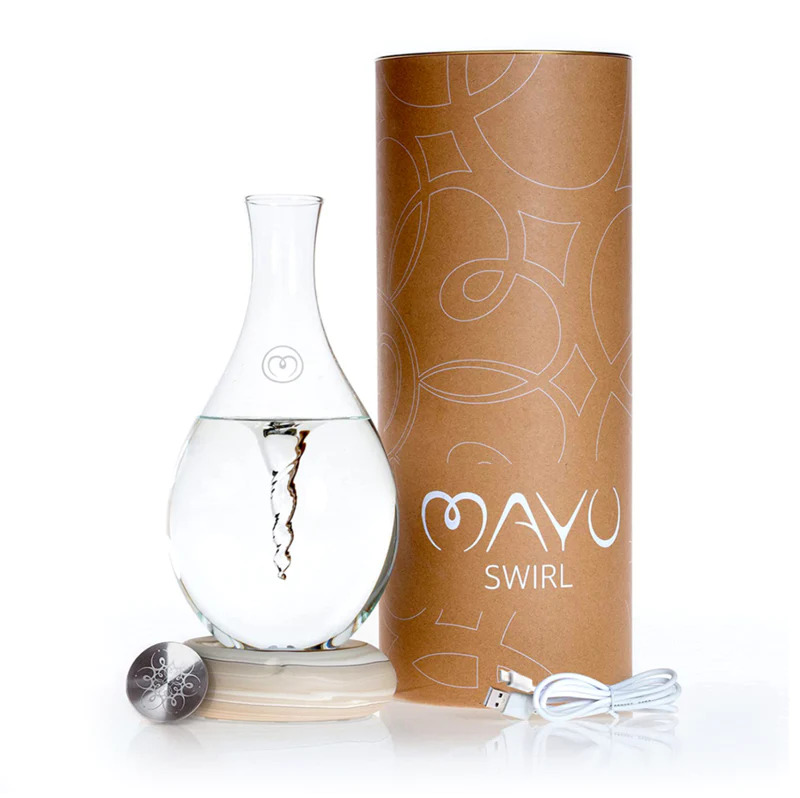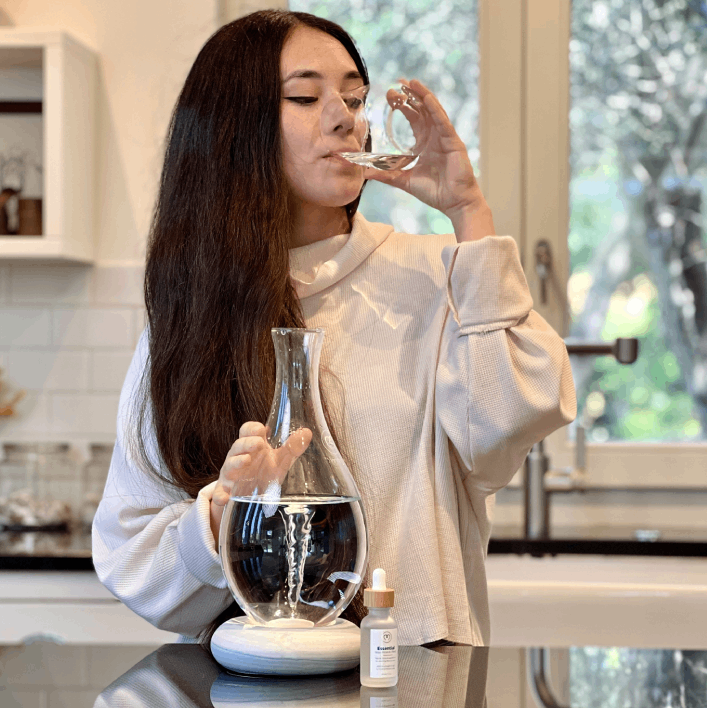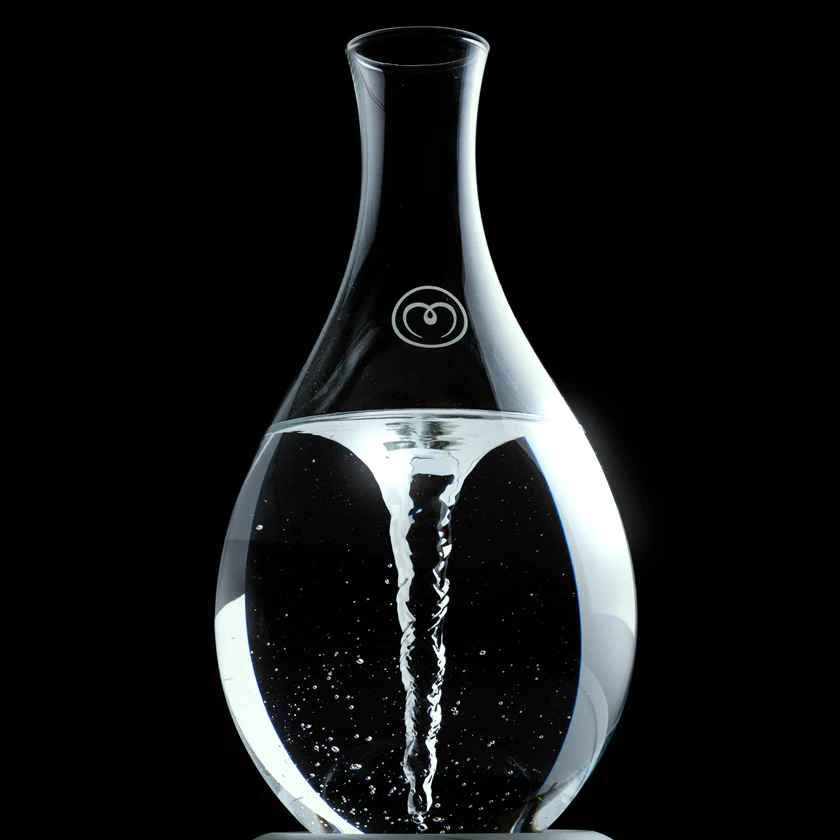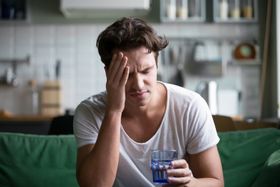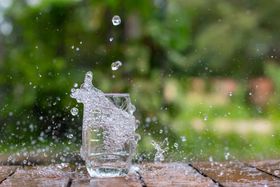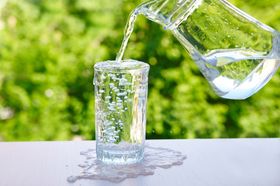Gatorade vs. Water: The Ultimate Hydration Comparison
Is Gatorade really better than water for hydration? Discover what science says about when sports drinks are beneficial and when plain water is the smarter choice for your body's needs.
Published April 30, 2025

Have you ever found yourself staring at the beverage cooler after a workout, wondering whether to grab water or a sports drink?
Well, the Gatorade vs. water debate has been going on for a long time, and there's some fascinating science behind it. Let's look into what makes these two different and when either might be your best choice.
» Structure your water to make it better than Gatorade
How Your Body Uses What You Drink
When you drink water or something like Gatorade, your body absorbs it mainly in the small intestine. Water moves into your cells by following minerals like sodium and chloride. This process—called osmosis—is how your body stays hydrated at the cellular level.
Drinks containing salt and sugar, like Gatorade, can help pull water into your system more quickly. The sugar and sodium work together to draw water through the gut lining, which is why this mix is used in oral rehydration solutions. This can be especially helpful when you’re sweating a lot or need to rehydrate fast.
How well your body absorbs a drink depends on a few things: what’s in it, how full your stomach is, and whether you're exercising. Hypotonic drinks (less concentrated than body fluids) are often absorbed faster than plain water or sugary drinks, giving them an edge in certain situations.
Water vs. Gatorade: What’s In Each?
Let's break down what you're getting in each bottle:
- Water: Just pure H2O—no calories, additives, or electrolytes. Simple, clean hydration that your body has evolved to use efficiently.
- Gatorade: Contains sodium (110mg) and potassium (30mg) per 8oz, plus 14g of sugar, with a carefully calculated osmolality around 280-300 mOsm/kg. It also includes artificial colors and flavors.
The difference isn't just about taste—these ingredients also change how your body processes the liquid, especially when you're sweating heavily or feeling dehydrated.
» Discover the best types of water to drink when you're dehydrated
So Which One Hydrates Better?
You've probably heard athletes swear by sports drinks, but is there science behind the hype?
Research shows that in certain situations, Gatorade can hydrate you more effectively than plain water—but it's definitely not a one-size-fits-all answer [2].
Let's get practical—when should you choose Gatorade over good old H2O [3]?
When Gatorade Makes Sense
- Marathon Training: If your workout lasts longer than 60-90 minutes, those electrolytes and carbs can help maintain your performance.
- Sweating Buckets: When you're active in extreme heat and losing lots of fluid, Gatorade helps replace what's pouring out of you and prevents heat problems due to dehydartion.
- Recovering From Stomach Bugs: Lost fluids from vomiting or diarrhea? Electrolyte drinks can help you hydrate quickly when dehydrated.
- After Intense Workouts: Replenishing glycogen stores while rebalancing electrolytes helps with hydration and muscle recovery.
» Discover the benefits of electrolyte water
When You'll Need Water
- For regular hydration, plain water is healthier and exactly what your body needs.
- If you're exercising for less than an hour, water is perfectly sufficient.
- Skip the extra sugar calories when they're not necessary.
- If your health is affected, for example, if you have diabetes, hypertension, or kidney issues, the added sugar and sodium might not be your friend. You will need to drink water for optimal hydration.
» Make water exciting with these tasty hydrating recipes to make at home
Health Considerations of Gatorade vs. Water
While Gatorade serves a specific purpose in targeted hydration, regular consumption does come with some health considerations [4]:
- A 20-oz bottle of Gatorade contains about 34g of sugar, which can contribute to weight gain and metabolic issues when consumed regularly.
- The combination of acidity and sugar in Gatorade can increase the risk of tooth decay.
- The added sodium, while beneficial during exercise, may be problematic for people monitoring their sodium intake.
- Regular consumption of sugar-sweetened beverages is associated with increased risks of weight gain, abdominal fat accumulation, and insulin resistance.
» Find out which types of water are the healthiest to drink
Getting the Best of Both Worlds
You don't have to choose exclusively between commercial sports drinks and plain water. You can also consider these alternative, evidence-based options[5]:
1. Mineral-Enhanced Water
Adding a small amount of high-quality mineral drops to filtered water can provide essential electrolytes without the added sugars and artificial ingredients of commercial sports drinks. The MAYU Swirl with Natural Minerals offers a perfect way to create mineralized water at home.
2. Natural Electrolyte Sources
For everyday enhanced hydration, consider natural options:
- Coconut water (rich in potassium).
- Lemon water with a pinch of salt (provides sodium and other minerals).
- Mineral-rich water (contains naturally occurring electrolytes).
» Learn about the best sugar-free electrolyte drops for active lifestyles
3. Situational Hydration Strategy
Develop a personal hydration strategy based on your activity level:
- Use plain water for daily hydration and light activity.
- Reserve sports drinks for intense exercise lasting more than an hour.
- Consider diluting sports drinks (1:1 with water) to reduce sugar content while still getting some electrolyte benefits.
The Bottom Line: Right Tool for the Right Job
Neither Gatorade nor water is universally "better" – each has its place in a comprehensive hydration strategy. Plain water remains the foundation of healthy hydration for most people in most situations. Its simplicity, purity, and zero-calorie profile make it ideal for daily fluid needs.
Gatorade and similar sports drinks serve a specific purpose: providing rapid rehydration with electrolyte replacement during periods of intense activity, excessive sweating, or illness-related fluid loss. In these specialized situations, their formulation can offer advantages over plain water.
The key is understanding your body's needs in different contexts and making informed choices about when each option is most appropriate.
To elevate your hydration, try the MAYU Essential Minerals for the perfect balance of essential electrolytes, improving your hydration without unnecessary additives.
» Learn about structured water and its potential benefits
References:
X. Shi and D. H. Passe, “Water and solute absorption from Carbohydrate-Electrolyte solutions in the human proximal small intestine: a review and statistical analysis,” International Journal of Sport Nutrition and Exercise Metabolism, vol. 20, no. 5, pp. 427–442, Oct. 2010, doi: 10.1123/ijsnem.20.5.427. Available: https://journals.humankinetics.com/view/journals/ijsnem/20/5/article-p427.xml
C. A. DeNysschen, “The Physiological Effects of Gatorade® Versus Diluted Fruit Juice during Exercise: A Preliminary Study,” Journal of Food and Nutrition, Sep. 2014, doi: 10.17303/jfn.2014.101. Available: https://doi.org/10.17303/jfn.2014.101
Édira Castello Branco de Andrade Gonçalves, Food and Nutrition Master’s Program, Federal University of the State of Rio de, Janeiro, CEP, Rio de Janeiro, RJ, Brazil, Tel: 55 (21) 2542-7418; E-mail: ediracba.analisedealimentos@unirio.br, “Effects of a fruit and vegetable sports drink on hydration and oxidative stress recovery of Brazilian professional athletes.” Available: https://sciforschenonline.org/journals/nutrition-food/NFTOA-2-134.php
N. Muñoz-Urtubia, A. Vega-Muñoz, C. Estrada-Muñoz, G. Salazar-Sepúlveda, N. Contreras-Barraza, and D. Castillo, “Healthy Behavior and Sports Drinks: A Systematic review,” Nutrients, vol. 15, no. 13, p. 2915, Jun. 2023, doi: 10.3390/nu15132915. Available: https://pmc.ncbi.nlm.nih.gov/articles/PMC10346316/
R. G. M. Van Der Sman, E. Paudel, A. Voda, and S. Khalloufi, “Hydration properties of vegetable foods explained by Flory–Rehner theory,” Food Research International, vol. 54, no. 1, pp. 804–811, Aug. 2013, doi: 10.1016/j.foodres.2013.08.032. Available: https://doi.org/10.1016/j.foodres.2013.08.032
Disclaimer: The information published by Mayu Water is not a substitute for the expert knowledge, advice, and recommendations of trained professionals. We strongly recommend consulting with industry experts and primary or scientific sources before making any health, research-related, or other important decisions.





































